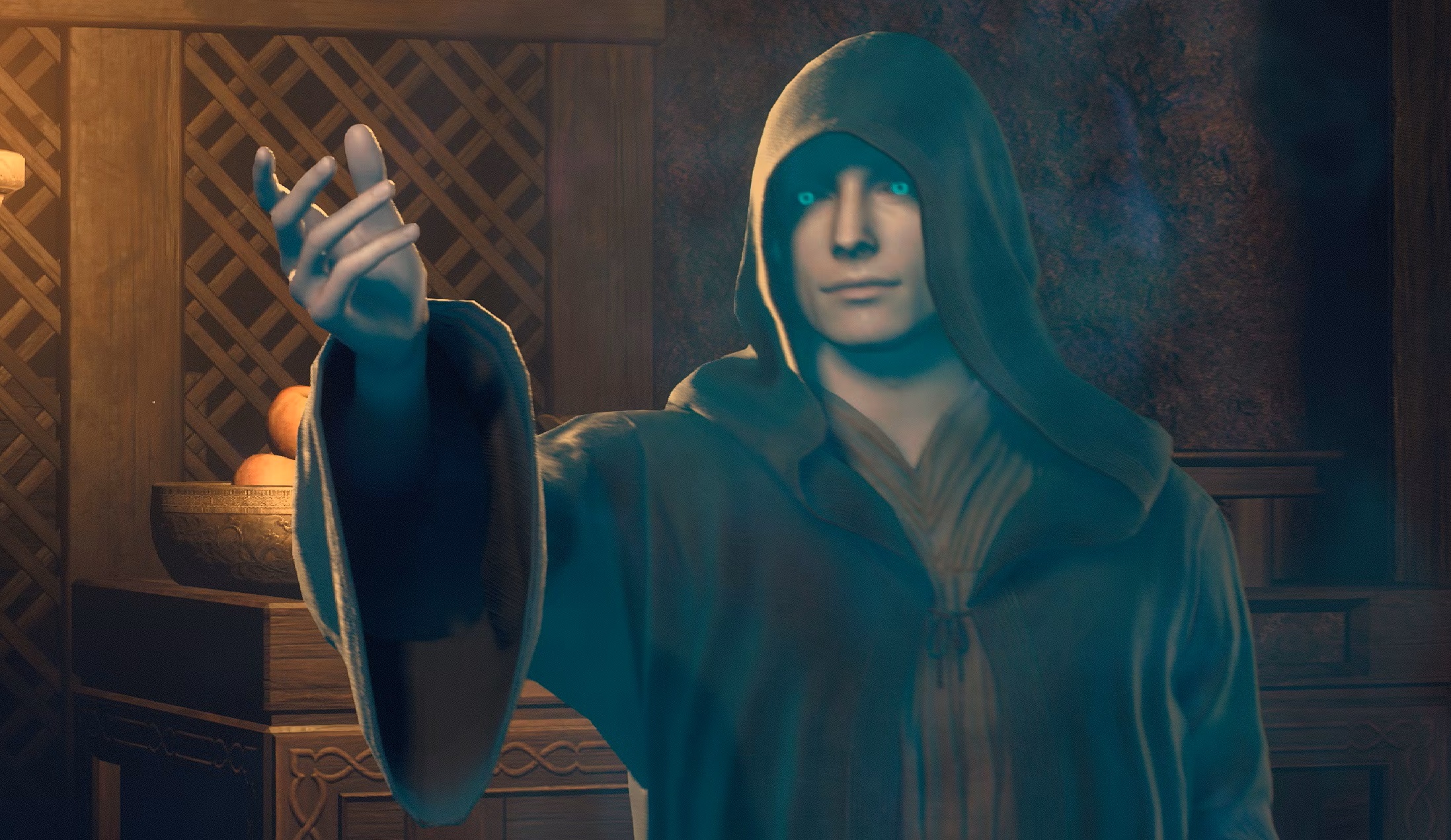
🚩🚩 NOTE: Big spoilers inbound! 🚩🚩
I am not prepared for the final battle of Dragon's Dogma 2. My borrowed pawns are underleveled, I'm running low on healing supplies and, after playing non-stop for 12 hours, I am very tired. I should have been smashed to bits, but something clicks as I'm scurrying underneath the massive dragon. I become one with my duospear, and I carve the scaly bastard up a treat. He goes down and I allow myself a tired "whoop!" before looking sheepish. I've bloody done it.
As the credits roll, I'm beckoned towards the sovran's throne. I can usher in a new era of peace as the Arisen who defeated the dragon. But sitting amongst the oblivious nobles is a ghostly figure: my spectral guide, the Pathfinder, whose identity remains a mystery even as the game is poised to end. He's annoyed when I chat with him, as if he's just waiting for me to finish the game so he can go to the pub with his mates. But I don't like being told what to do. I chat with him again. He's angry this time.
This is when I realise the game is absolutely not over.
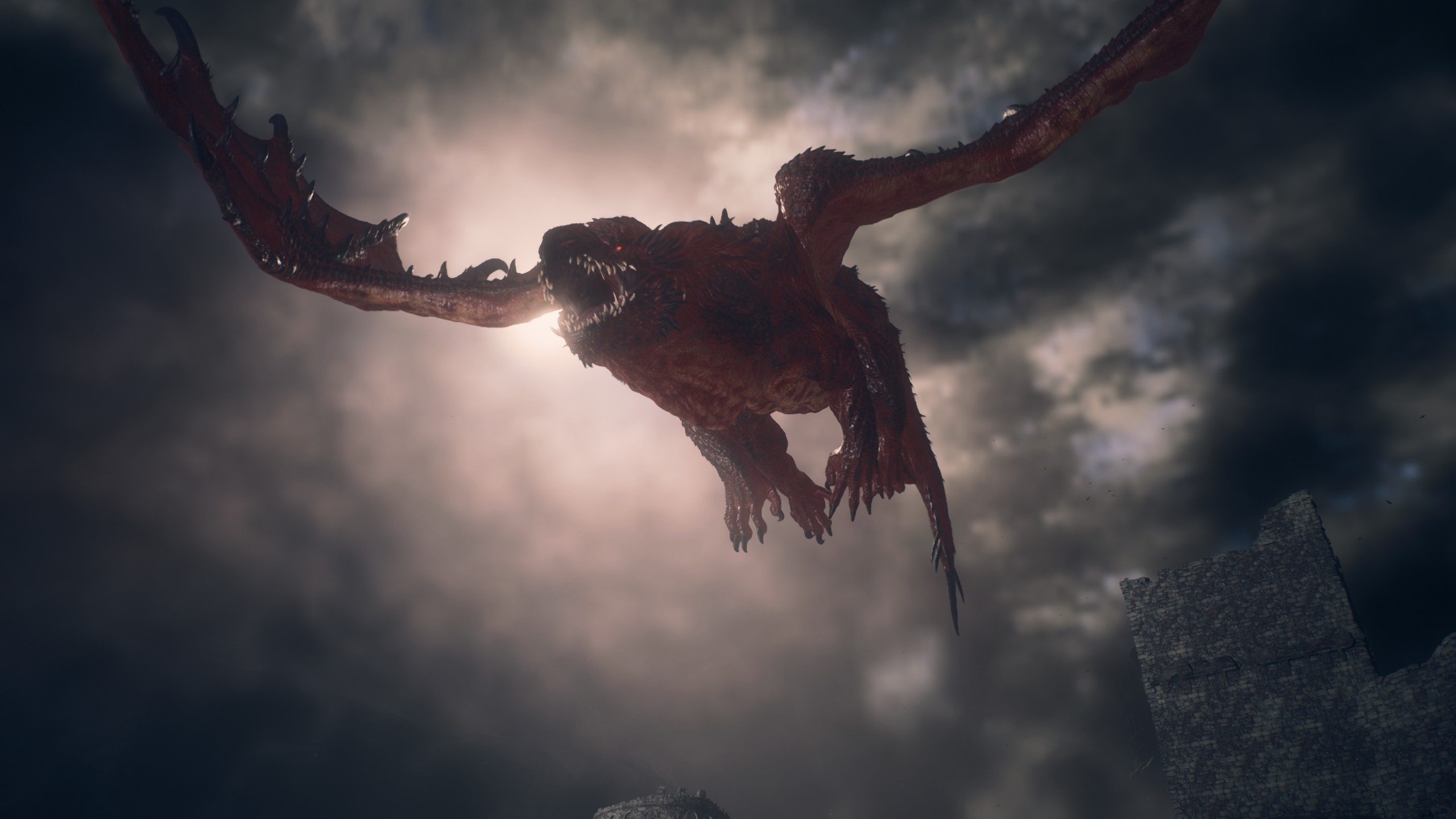
My refusal to simply accept my fate causes my guide to transport me out of the castle and back in time. The dragon is alive once more, and we're hurtling through the sky towards our final battle again. I have no idea what's going on or what I should do. I decide to crawl towards his weak spot. Maybe I can stab him before we land? But I can't do that. What I can do, however, is equip the Godsbane sword I was gifted by the first Arisen countless hours before. And I stab myself in the heart.
Instead of dying, I go through a custscene and then find myself just off the coast of Battahl. I should be consumed by the red miasma because I'm standing in what used to be water. But all the water is gone. Above me the sky is red, with huge, angry beams of light bearing down on the world. The Unmoored World. Dragon's Dogma 2's true ending.
Apocalypse now
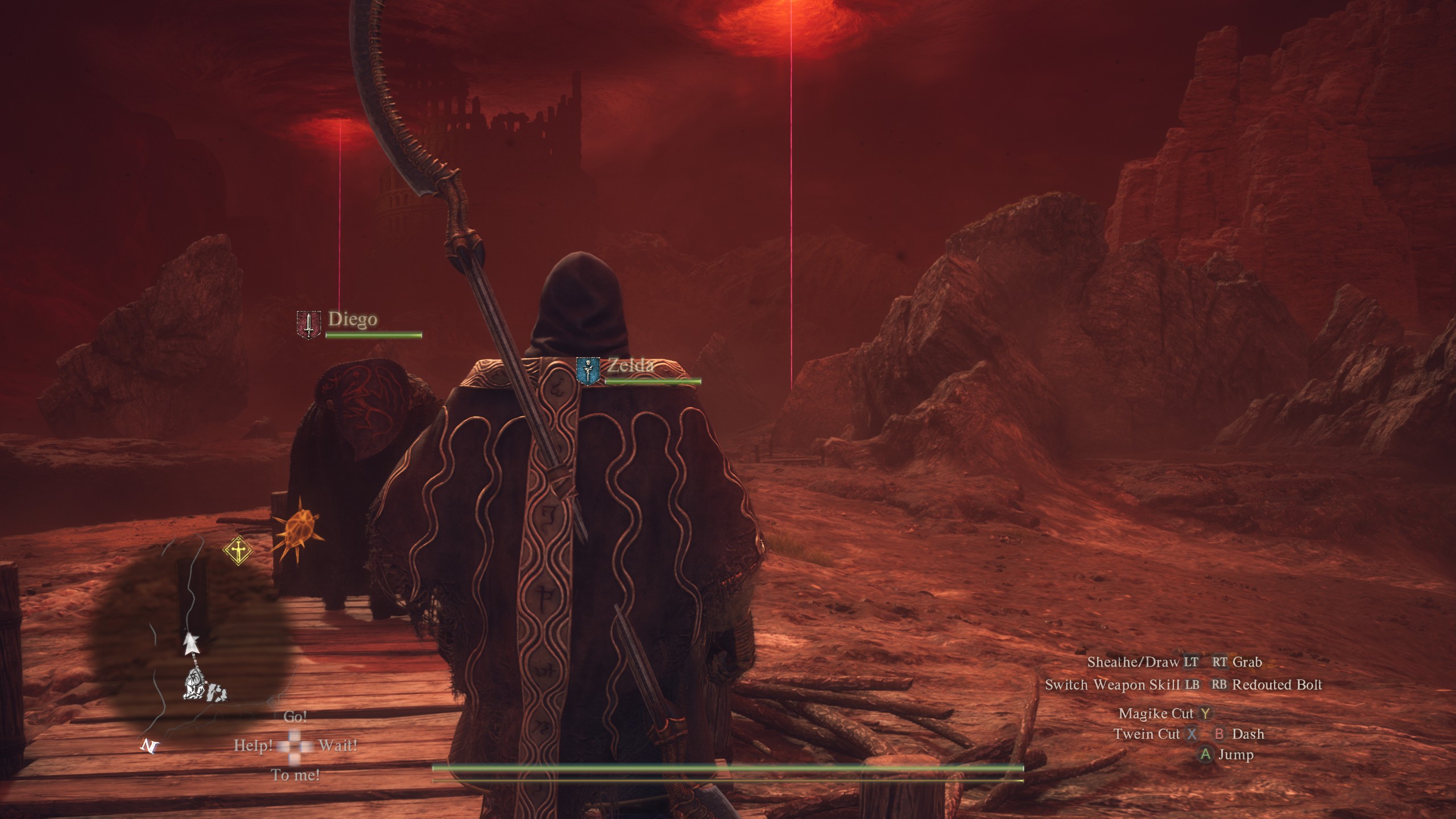
Capcom gave reviewers some details about Dragon's Dogma 2's various endings, but in an effort to experience the entire game like a regular player I didn't spoil this for myself beforehand. Thus, this big "holy shit" moment genuinely shocks me. By not letting the game end with my victory against the dragon, fate has been broken, and my spectral guide now wants me to watch what I've wrought: the end of everything.
To reinforce the stakes of the Unmoored World, part of it has already been completely destroyed. Cheerio, Melve! The few quests left in my log vanish, because I've only got one job to do now: save as many people as I can. Thus begins a race to speak to the world's leaders and encourage them to come to the last sanctuary left—an ancient, once-submerged castle.
Like an epilogue, it's a whirlwind tour of my previous haunts, reconnecting me with NPCs who I'd helped, and sometimes tried to thwart, back before everything went to shit. But it's more than a chance to say farewell. Each location also features a massive boss battle, with creatures who must be defeated to stop the aforementioned death beams from destroying everything. In typical Dragon's Dogma 2 fashion, it's not clear how much time you have, but there's absolutely a time limit. And this is why the Volcanic Island Camp was excised from existence. Sorry guys, my bad. I was, erm, napping?
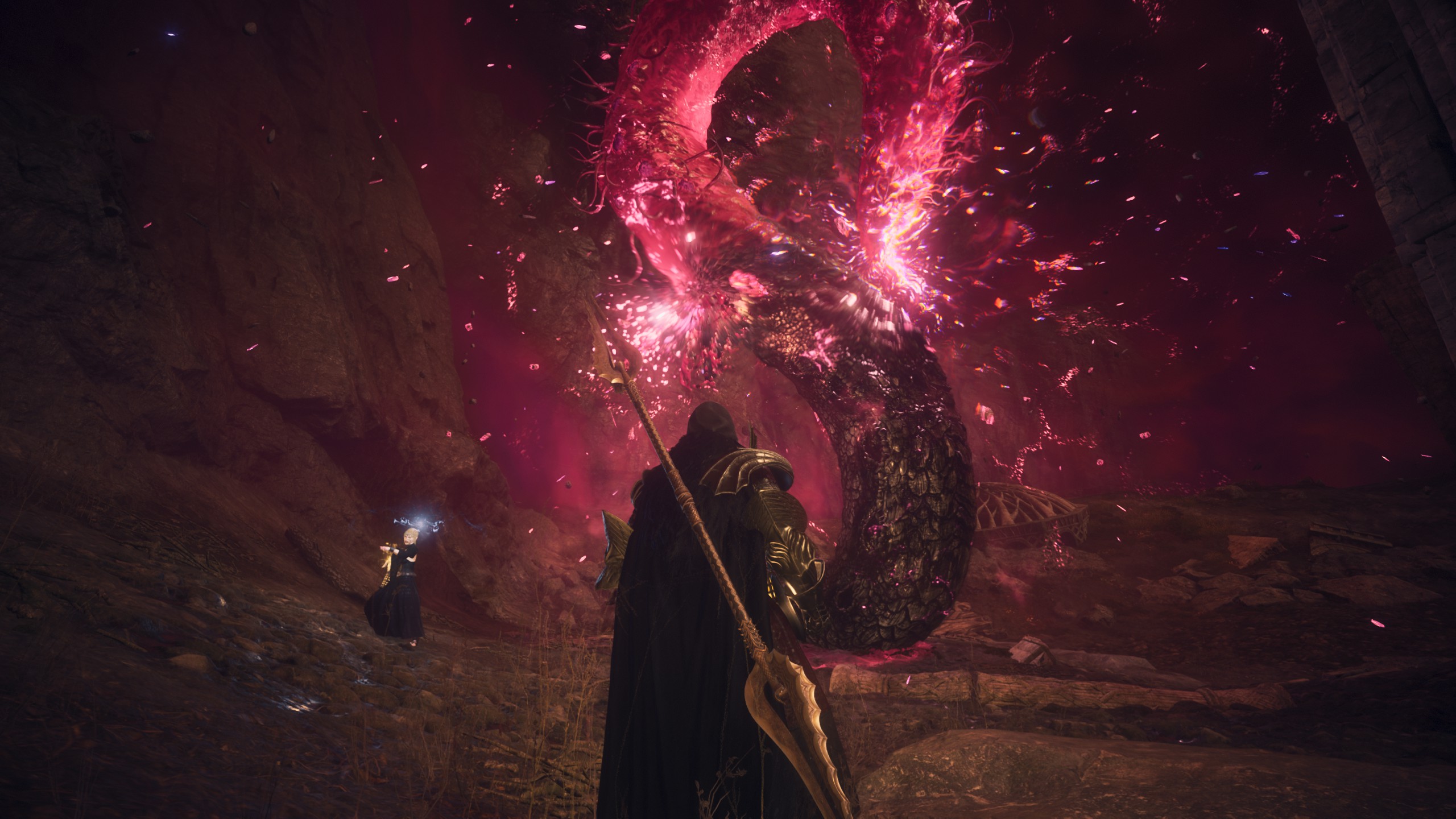
See, resting too much is a bad idea. Every time you rest, you're closer to everything being destroyed. But it's very tempting, because it fully repairs your health bar, and you don't want to die in the Unmoored World, as that will send you all the way back to the first day of the apocalypse, forcing you to redo everything again. There's more than a hint of a roguelike in its structure. Death is also a lot more likely, not just because you'll be facing a series of tough bosses, but because there are stronger variants of old enemies wandering the world as well. And those pesky skeletons who haunt the night? Well, now that the sun is gone, they're gallivanting around the world all the time.
Maybe it's because I've been spoiled by soulslikes, but I want to properly earn my victories.
It's stressful and fraught with danger, then, but so much more satisfying than simply slaying a dragon and calling it a day. I've never been a fan of the idea that a single fight, taking place in a vacuum, is all that's needed to save the world. A monumental task such as this should require a bit of effort. And while that final dragon battle can drag on, it's not especially challenging. Maybe it's because I've been spoiled by soulslikes, but I want to properly earn my victories.
From a narrative perspective, the Unmoored World is also a whole lot more engaging. At several points the cyclical nature of the rivalry between the dragon and the Arisen is made clear, so merely stabbing the big fella to death feels wrong, somehow, like you're just playing a preordained role, going through the motions, and not actually changing anything. Risking the utter destruction of the world in the hopes of freeing everyone from a never-ending cycle is a much richer conclusion.
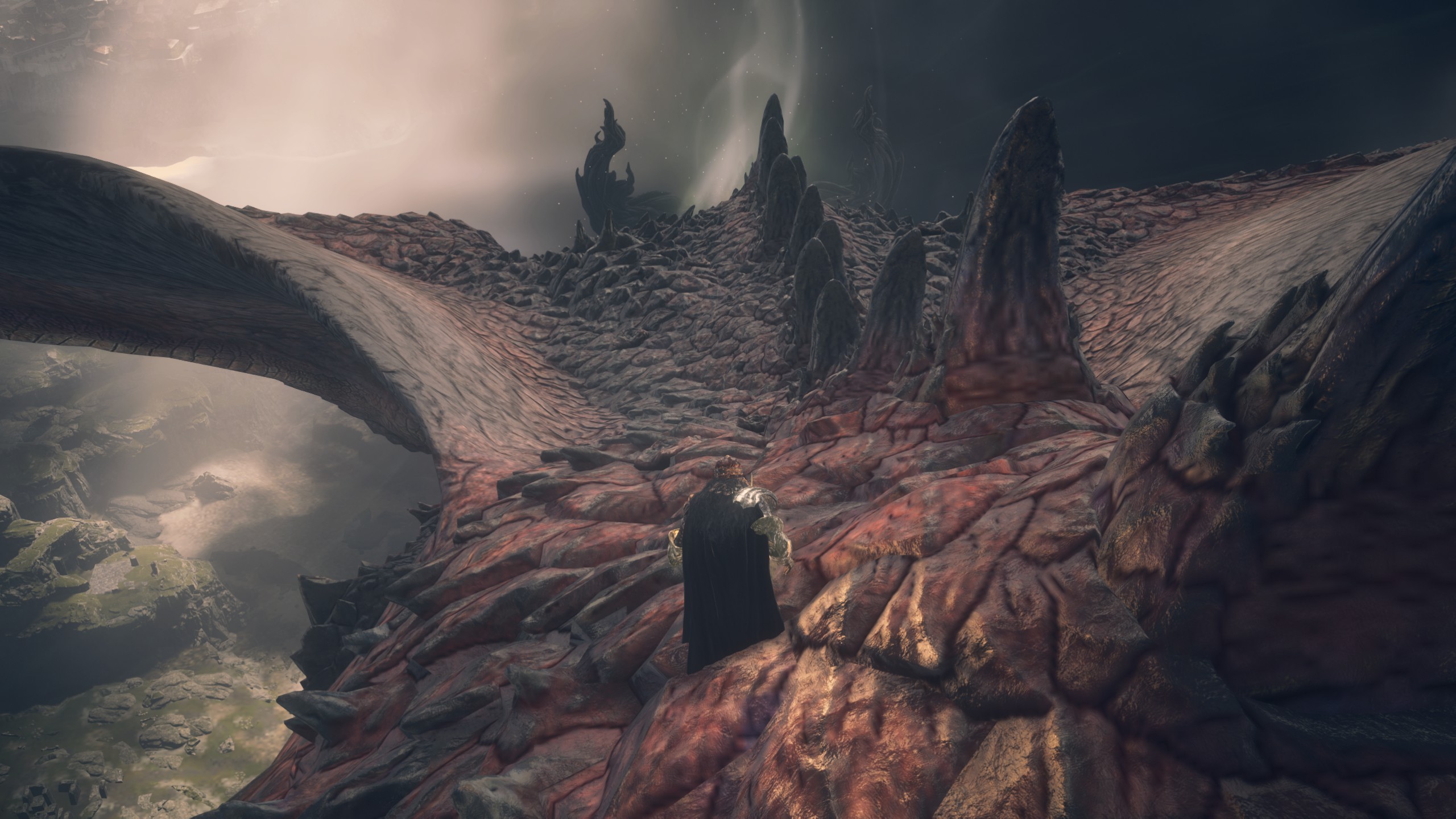
I'm also an absolute sucker for some meta commentary on the nature of RPGs. For most of the adventure, Dragon's Dogma 2 follows the classic action-RPG model: You're a fated hero, tasked with growing in power until you're able to defeat the game's Big Bad. You can make lots of little choices, but in the grand scheme of things your agency is limited. If you've ever played a tabletop RPG with a tyrannical GM, the Pathfinder might feel familiar. It's his world, and you're just following his script, and if you're not going to play ball he's going to flip the table over.
The true ending, then, lets you break free from the constraints of a typical action-RPG narrative structure. It's liberating and surprising, saving one last big twist for the end. Yes, the agency you have amounts to getting a choice between ending the game in the throne room and maintaining the chains of fate or saying "screw this" and fighting through the Unmoored World, but that decision has such a monumental impact.
It also meant that, instead of calling it a night after watching the credits roll for the first time, I instead stayed up for another six hours to hit the proper ending. It was entirely worth it, though, and I have no regrets.







